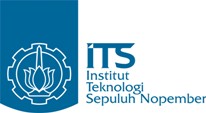Water Conservation Practices viewed from Community Socio-Psychological Factors (Case Study: Bandar Lampung City, Indonesia)
Abstract
Keywords
Full Text:
PDFReferences
Ajzen, I. (1991). Organizational Behavior and Human Decision Processes. The Theory of Planned Behavior, 50(2).
Amala, Z., Setiyawan, A., Sarli, P., Soewondo, P., & Awfa, D. (2023). Water and Sanitation Service: A Prority to Improve Quality of Slum Areas in Pontianak City Based on Stakeholders' Preferences. International Journal of GEOMATE, 24(102), 85-92.
Aprile, M. (2017). Water Conservation Behavior and Environmental Concerns: Evidence from A Representative Sample of Italian Individuals. Journal of Cleaner Production, 159, 119-129.
Ariyanto, L. (2022). Alokasi Air DAS Sekampung sebagai Upaya Pengelolaan Sumber Daya Air Berkelanjutan. Journal of Infrastructural in Civil Engineering (JICE), 03(01), 1-7. doi:https://doi.org/10.33365/jice.v3i01.1483
BPLH. (2009). Status Lingkungan Hidup Kota Bandar Lampung. Jakarta: Badan Pengelolaan Lingkungan Hidup.
Caurberghe, V., Vanquez-Casaubon, E., & Van de Sompel, D. (2021). Perceptions of water as commodity or uniqueness? The role of water value, scarcity concern and moral obligation on conservation behavior. Journal of Environmental Management, 292(112677).
Corral-Verdugo, V. (2021). Personal Normative Beliefs, Antisocial Behavior, and Residential Water Conservation. Environmental and Behavior, 38(3), 406-421.
Departemen Permukiman dan Prasarana Wilayah. (2002). Pedoman/Petunjuk Teknis Manual Sistem Penyediaan Air Minum Perkotaan Edisi Pertama. Jakarta: Departemen Permukiman & Prasarana Wilayah.
Diaz, J., Odera, E., & Warner, L. (2020). Delving deeper: Exploring the influence of psycho-social wellness on water conservation behavior. Journal of environmental management, 264.
Fan, L., Wang, F., Liu, G., Yang, X., & Qin, W. (2014). Public Perception of Water Consumption and Its Effects on Water Conservation Behavior. Water, 6(6), 1771-1784.
Fu, Y., Wu, W., & Gao, J. (2015). Simulation and conservation of the end use water based on behavior intervention modelling. Procedia Engineering, 119, 761-770.
Hapsery, A., & Lubis, R. (2019). Penggunaan Metode Stepwise Pada Pemodelan Perencanaa Track Quality Index (TQI) untuk Kereta Api Semicepat Indonesia. MUST: Journal of Mathematics Education, Science and Technology, 4(1), 144-122.
Hassell, T., & Cary, J. (2007). Literature Review. In Promoting Behavioral Change in Household Water Consumption. Victoria: Smart Water.
Iman, M., Irawan, E., Setiawan, B., & Abdurrahman, O. (2017). Air Tanah untuk Adaptasi Perubahan Iklim di Malang, Jawa Timur: Penilaian Risiko Penurunan Ketersediaan Air. RISET: Geologi dan Pertambangan, 27(1), 47-64.
Janie, D. (2013). Statistik Deskriptif & Regresi Linier Beganda dengan SPSS (A. Ika, Ed.). Semarang: University Press.
Kementerian PPN and UNICEF. (2022). Collaboration For Recovery And Resilience Through Better Wash Access For All (A Compendium Of Wash Best Practices In Indonesia ed.).
Knickmeyer, D. (2019). Social factors influencing household waste separation: A literature review on good practices to improve the recycling performance of urban areas. Journal of Cleaner Production. doi:https://doi.org/10.1016/j.jclepro.2019.118605
Koop, S., Van Dorssen, A., & Brouwer, S. (2019). Enhancing domestic water conservation behaviour: A review of empirical studies on influencing tactics. Journal of Environmental Management, 247, 867-876.
Mahdavi, T. (2021). Application of the ‘theory of planned behavior’ to understand farmers’ intentions to accept water policy options using structural equation modeling. Water Science and Technology Water Supply, 21(3), 2720-2734.
Moiron, M., Laskowski, K., & Niermela, P. (2020). Individual Differences in Behaviour Explain Variation in Survival: a meta-analysis. Ecology Letters, 23, 399-408. doi:doi.org/10.1111/ele.13438
Nancarrow, B., Smith, L., & Syme, G. (1996). The Ways People Think about Water The Ways People Think About Water. Journal of Environmental Systems, 25(1).
Nugroho, P., Rahayu, A., Juliani, R., Cahyo, A., Ankhoviyya, N., Gumilar, E., & Nugroho, A. (2022). Understanding Resident Intention and Behavior toward Water Conservation Initiative in the Upstream of West Java, Indonesia. Jurnal Sylva Lestari, 10(1), 12-25.
Pambudi, Y., & Wisuantari, N. (2021). Moderation of Social Norms and Personal Involvement of Pro-Environmental Behavior. Jurnal Psikologi Teori dan Terapan, 11(2), 83-99. doi:http://dx.doi.org/10.26740/jptt.v11n2.p83-99
Ratna, I. (2012). Gejala Perubahan Iklim, Dampak dan Strategi Adaptasinya pada Wilayah dan Komunitas Nelayan di Kecamatan Bluto, Kabupaten Sumenep. Jurnal Masyarakat & Budaya, 14(3), 439-46666.
Rotter, J. (1996). Generalized Expectancles For Internal Versus External Control of Reinforcement Psychologycal Monographs. General and Applied, 80(1).
Sanchez, C., Esper, F., Diaz, A., & Rubio, R. (2020). Understanding In-Room Water Conservation Behavior: The Role of Personal Normative Motives and Hedonic Motives in A Mass Tourism Destination. Journal of Destination Marketing & Management, 2(12).
Setyowati, R., & Susilowati, F. (2019). Pendekatan MItigasi dan Adaptasi Perubahan Iklim Melalui Reklamasi Lahan dan Konservasi Air. Construction and Material Journal, 1(3), 2655-9625.
Singha, B., Eljamal, O., Karmaker, S., Maamoun, I., & Sugihara, Y. (2022). Water conservation bahavior: Exploring the role off social, psychological, and behavioral determinants. Journal of Environmental Management, 317, 115484.
Sitadevi, L. (2016). Membangun Ketahanan Kota terhadap Dampak Perubahan Iklim: Studi Kasus Kota Bandar Lampung. Jurnal Perencanaan Wilayah dan Kota (Journal of Regional and City Planning), 27(3), 190-207.
Stern, P. (2000). New Environmental Theories: Toward A Coherent Theory of Environmentally Significant Behaviorz. Journal of Social Issue, 56(3), 407-424.
Sugiyono. (2014). Metode Penelitian Pendidikan Pendekatan Kuantitatif, Kualitatif, dan R&D. Jakarta: Alfabeta.
Turner, M., Skubisz, C., & Rimal, R. (2011). Theory and Practice in Risk Communication: A Review of The Literature and Visions For The Future. The Routledge handbook of health communication, 174-192.
Wardani, A. (2021). Konservasi Sumber Daya Air Guna Terjaganya Kualitas Serta Entitas Air Baku. PISCES: Proceeding of Integrative Science Education Seminar, 1(1), 117-126.
Willis, R., Stewart, R., Panuwatwanich, K., Williams, P., & Hollingsworth, A. (2011). Quantifying the influence of environmental and water conservation attitudes on household end use water consumption. Journal of environmental management, 92(8), 1996-2009.
Wohon, S., Hatidja, D., & Nainggolan, N. (2017). Penentuan Model Regresi Terbaik dengan Menggunakan Metode stepwise (Studi Kasus: Impor Beras di Sulawesi Utara). Jurnal Ilmiah Sains, 17(2), 80-88.
DOI: http://dx.doi.org/10.12962%2Fj25481479.v9i1.20165
Refbacks
- There are currently no refbacks.
 |  |  |  |
| |  |  |
|
|
|
|
|
P-ISSN: 2541-5972
E-ISSN: 2548-1479
IJMEIR journal published by Department of Marine Engineering, Faculty of Marine Technology, Institut Teknologi Sepuluh Nopember Surabaya Indonesia under licenced Creative Commons Attribution-ShareAlike 4.0 International Licence. Based on https://iptek.its.ac.id/index.php/ijmeir/


1.png)
